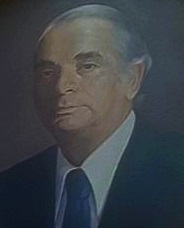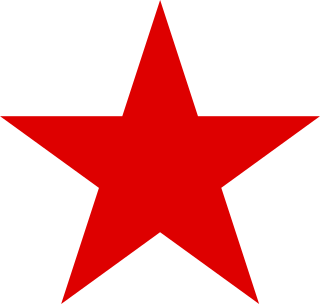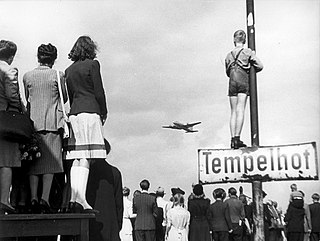
José María Hipólito Figueres Ferrer served as President of Costa Rica on three occasions: 1948–1949, 1953–1958 and 1970–1974. During his first term in office he abolished the country's army, nationalized its banking sector, and granted women and Afrodescendents the right to vote, as well as access to Costarrican nationality to people of African descent. He was a good friend of the Governor of Puerto Rico, Luis Muñoz Marín, praising his political achievements in one of his essays.

The Social Christian Unity Party is a centre-right political party in Costa Rica.
The Costa Rican Civil War was the bloodiest event in 20th-century Costa Rican history. It lasted for 44 days, during which approximately 2,000 people are believed to have died. The conflict was precipitated by the vote of the Costa Rican Legislature, dominated by pro-government representatives, to annul the results of the presidential elections held in February, alleging that the triumph of opposition candidate Otilio Ulate had been achieved by fraud.

The National Union Party is the name of several liberal conservative parties in Costa Rica, generally located right-to-center in the political spectrum.

General elections were held in Costa Rica on 13 February 1944. Teodoro Picado Michalski of the Victory Bloc won the presidential election with 75.1% of the vote. Voter turnout was 43.2%.

General elections were held in Costa Rica on 8 February 1948. Otilio Ulate Blanco of the National Union Party won the presidential election with 55.3% of the vote, although the elections were deemed fraudulent and annulled by Congress, leading to the Costa Rican Civil War later that year. Following the war, the results of the parliamentary election were also annulled. Voter turnout was 43.8% in the vice-presidential election and 49.2%.

General elections were held in Costa Rica on 26 July 1953. José Figueres Ferrer of the National Liberation Party won the presidential election, whilst his party also won the parliamentary election. Voter turnout was 67.2 percent in the presidential election and 67.5 percent in the parliamentary election.

General elections were held in Costa Rica on 2 February 1958. Mario Echandi Jiménez of the National Union Party won the presidential election, whilst the National Liberation Party won the parliamentary election. Voter turnout was 64.7%.

General elections were held in Costa Rica on 4 February 1962. Francisco Orlich Bolmarcich of the National Liberation Party won the presidential election, whilst his party also won the parliamentary election. Voter turnout was 80.9%.
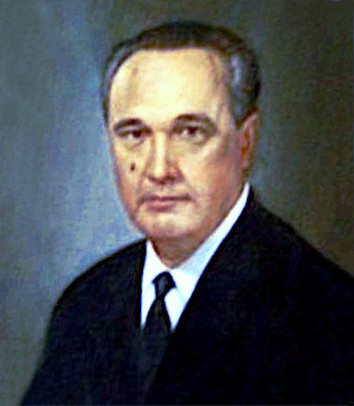
General elections were held in Costa Rica on 6 February 1966. José Joaquín Trejos Fernández of the National Unification Party won the presidential election, whilst the National Liberation Party won the parliamentary election. Voter turnout was 81.4%.

General elections were held in Costa Rica on 1 February 1970. José Figueres Ferrer of the National Liberation Party won the presidential election, whilst his party also won the parliamentary election. Voter turnout was 83.3%.

General elections were held in Costa Rica on 5 February 1978. Rodrigo Carazo Odio of the Unity Coalition won the presidential election, whilst his party also won the parliamentary election. Voter turnout was 81%.
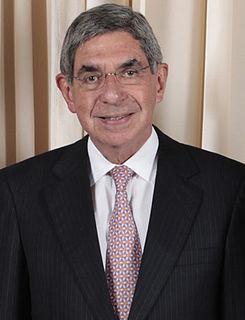
General elections were held in Costa Rica on 2 February 1986. Óscar Arias of the National Liberation Party won the presidential election, whilst his party also won the parliamentary election. Voter turnout was 81.8%.

General elections were held in Costa Rica on 6 February 1994. José María Figueres of the National Liberation Party won the presidential election, whilst his party also won the parliamentary election. Voter turnout was 81.1%.

General elections were held in Costa Rica on 1 February 1998. Miguel Ángel Rodríguez of the Social Christian Unity Party won the presidential election, whilst his party also won the parliamentary election. Voter turnout was 70%, the lowest since the 1950s.

Costa Rica's National Liberation Party presidential primary is a primary election programmed for April 2nd, 2017 in order to choose the party's presidential nominee for the Costa Rican general election, 2018. PLN is currently the main opposition party to Luis Guillermo Solís' government. In case no candidate reaches the 40% of the votes a second round will be held on June among the two more voted candidates. Something that hasn't ever happen before.
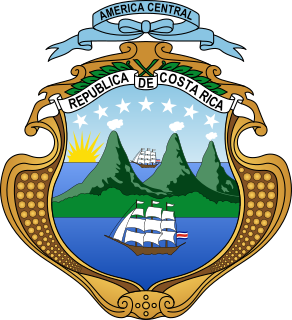
Liberalism in Costa Rica is a political philosophy with a long and complex history. Liberals were the hegemonic political group for most of Costa Rica’s history specially during the periods of the Free State and the First Republic, however, as the liberal model exhausted itself and new more left-wing reformist movements clashed during the Costa Rican Civil War liberalism was relegated to a secondary role after the Second Costa Rican Republic with the development of Costa Rica’s Welfare State and its two-party system controlled by social-democratic and Christian democratic parties.

The Reform State or Reformist State is a period in Costa Rican history characterized by the change in political and economic paradigm switching from the uncontrolled capitalism and laissez faire of the Liberal State into a more economically progressive Welfare State. The period ranges from approximately 1940 starting with the presidency of social reformer Rafael Angel Calderón Guardia and ends around the 1980s with the first neoliberal and Washington Consensus reforms that begun after the government of Luis Alberto Monge.


